All products featured are independently chosen by us. However, SoundGuys may receive a commission on orders placed through its retail links. See our ethics statement.
DistroKid
2013
$19.99/yr for Musician
$35.99/yr for Musician Plus
$79.99/yr for Label
Cassettes, CDs, and in many cases, even record labels, are things of the past. Nowadays it’s easier than ever for musicians to remain completely independent and avoid signing their lives away to a label only interested in maximizing profits. To get your music out into the world without a label, you need to join a distribution service. There are a few options out there, but one of the most popular is DistroKid. Let’s go over its benefits and its downfalls, so you can decide if it’s the best distribution service for your music career.
Editor’s note: This review was updated on July 12, 2021, to address an FAQ about artist accounts.
What is DistroKid?
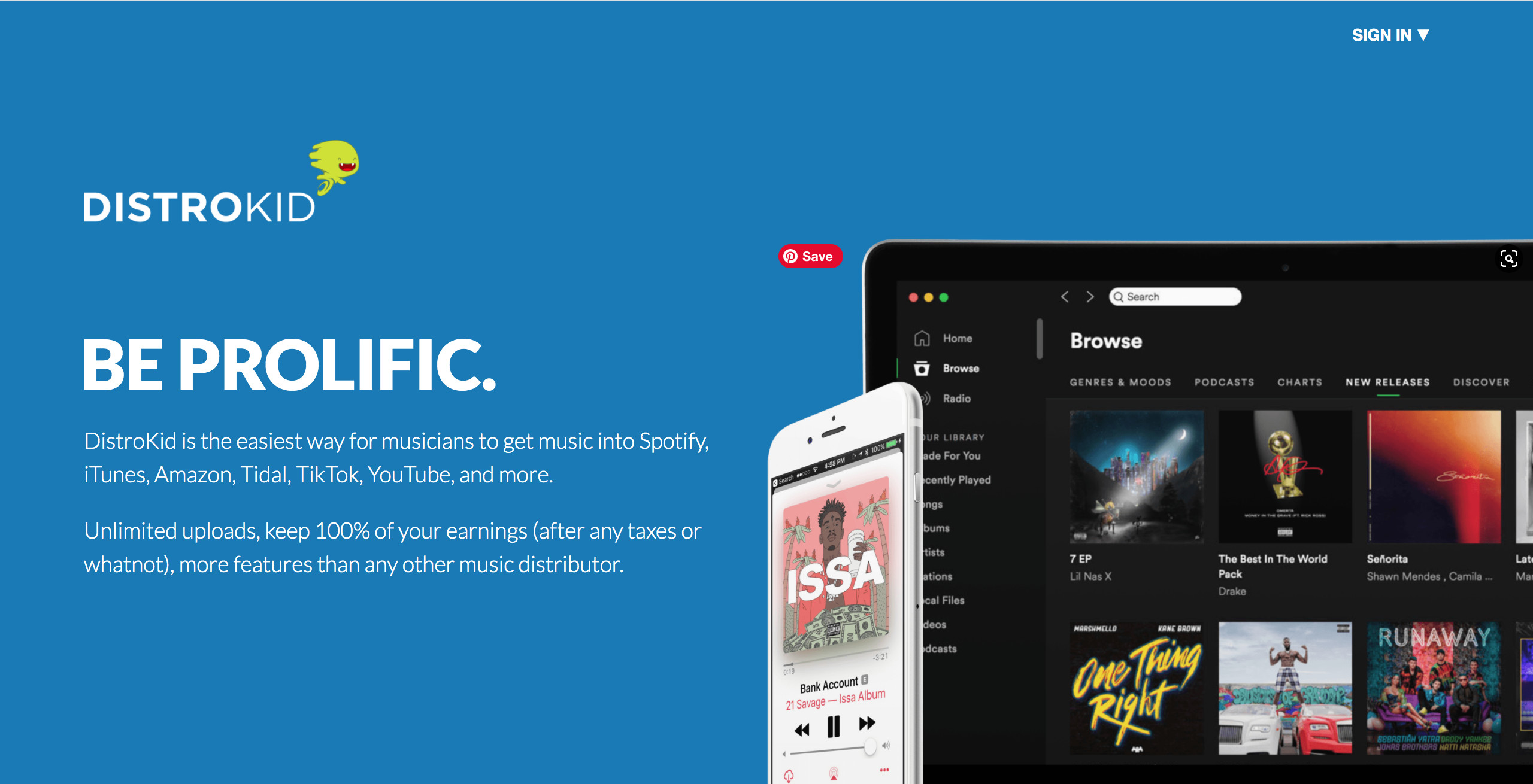
DistroKid is a music distribution service that performs some of the functions of a record label, like releasing music and collecting royalties, designed for artists who either aren’t yet signed to a label or who want to remain independent. Independent musicians with a DistroKid membership can upload audio files, upload album artwork, and name their track or album, and DistroKid will send it off to digital stores and music streaming services like iTunes and Spotify, where it can gain traction with fans and generate earnings.
Who should use DistroKid?
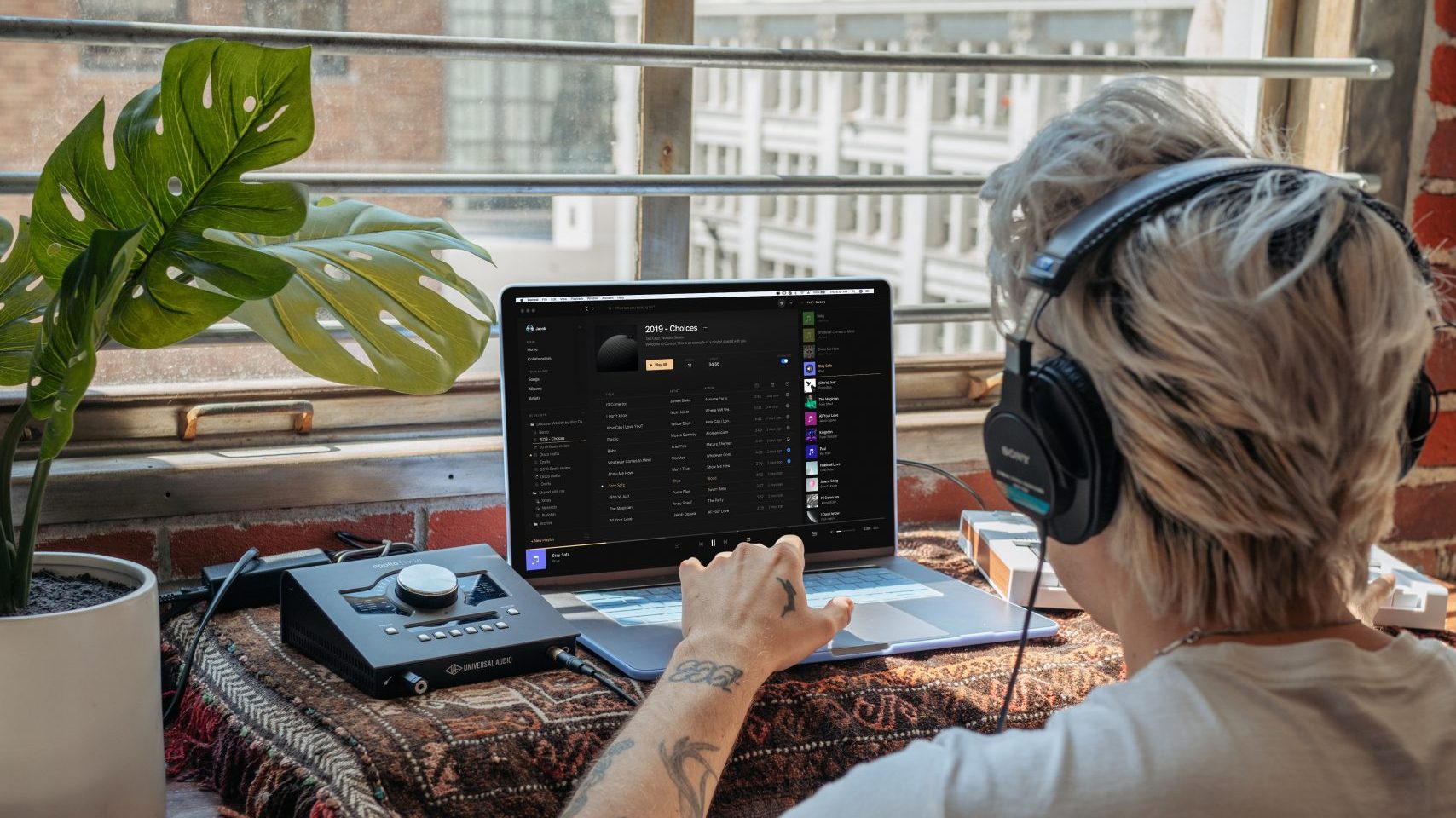
- Independent musicians who release music often will appreciate DistroKid. It’s a subscription-based service, so if you release a song every month, this type of payment plan will save money in the long term.
- Musicians who want publicity and exposure to record labels can use DistroKid’s career development tools, which include a matchmaking service between artists and labels.
How does DistroKid work?
After signing up for DistroKid, you’ll want to design your personal profile. DistroKid lets you input your social media information, categorize yourself by expertise (songwriter or producer) and select your genre and artist influences. You can always change these things, but the initial input automatically sets you up in online communities with similar musicians.
To release a single, album, or EP, click the Upload tab on the top panel of the DistroKid home page. Here you’ll select how many tracks you plan to release, and the distribution partners you want to send your release to. You’ll upload audio files, track titles and information, and album artwork. If you have a Musician Plus or Label subscription, you’ll be able to adjust your release’s price on iTunes, and some additional freedoms we’ll go over later. The audio file types DistroKid accepts are WAV, WMA, M4A, FLAC, MP3, and CDDA.
Don’t miss: Best microphones for recording
Unlike some of its competitors, DistroKid does not review the releases you put out. This means you can avoid long wait times, but it also means DistroKid won’t help you preemptively avoid legal issues with your releases.
Can you release a cover song through DistroKid?
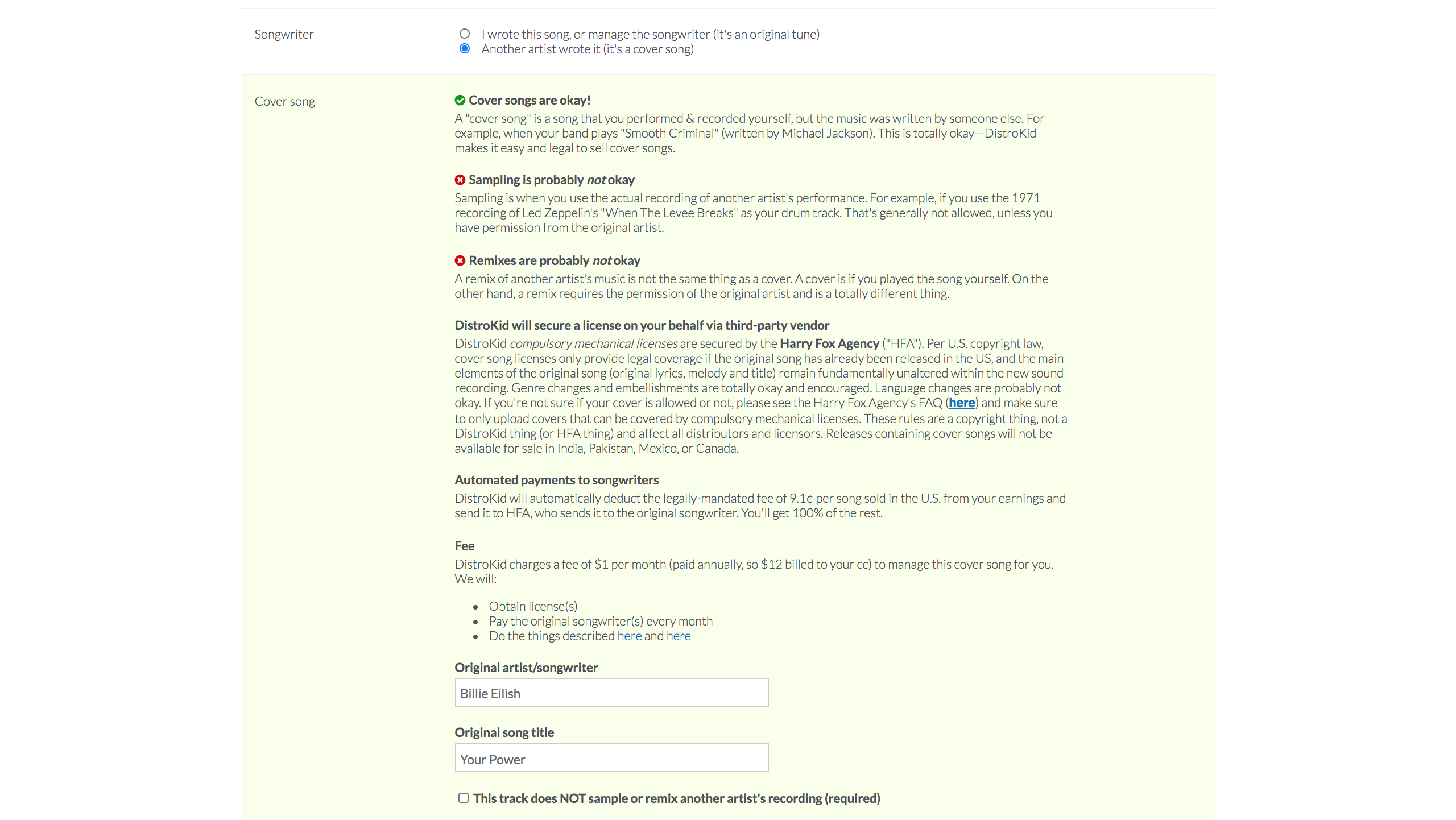
DistroKid provides a service to help you easily release cover songs, which costs an additional $12 per year. When you opt into this service, DistroKid manages your cover by obtaining a license for it and paying the original songwriter their royalties. It also keeps tabs on the copyright laws that ensure you’re allowed to keep the cover song public and continue to earn money from your master.
How much does DistroKid cost?
DistroKid subscriptions are relatively affordable, but the service contains a lot of hidden fees. While this seems unsavory, these fees could lead to opportunities that advance your music career. DistroKid offers three options for subscription plans, and none of them come with a free trial period. This makes sense: in order to keep your music available in stores and on streaming platforms, you have to continue to pay an annual fee.
| Musician | Musician Plus | Label | |
|---|---|---|---|
Price | Musician $19.99/yr | Musician Plus $35.99/yr | Label $79.99/yr for 5 artists up to $1199.99/yr for 100 artists |
Unlimited song uploads | Musician ✓ | Musician Plus ✓ | Label ✓ |
Number of artists | Musician 1 | Musician Plus 2 | Label 5 to 100 |
Spotify verified checkmark | Musician ✓ | Musician Plus ✓ | Label ✓ |
Synced lyrics for Instgram | Musician ✗ | Musician Plus ✓ | Label ✓ |
Daily sales stats | Musician ✗ | Musician Plus ✓ | Label ✓ |
Customizable label name | Musician ✗ | Musician Plus ✓ | Label ✓ |
Customizable release date | Musician ✗ | Musician Plus ✓ | Label ✓ |
Customizable preorder date | Musician ✗ | Musician Plus ✓ | Label ✓ |
Customizable iTunes pricing | Musician ✗ | Musician Plus ✓ | Label ✓ |
DistroKid is a unique distribution service because its members pay annual subscription fees rather than paying for each individual release. However, the caveat with this is that if you cancel your membership, or switch banks and forget to let DistroKid know, all your music will be removed. Luckily, there is an easy, though pricey solution called Leave a Legacy.
How to make sure your music stays available even if you cancel your DistroKid subscription
If you want to upload your music today and ensure it remains available for years to come, you must opt into the Leave a Legacy program. For each single or album you release, you pay a one-time fee that keeps the music available in perpetuity. You’ll continue to accrue royalties even if you forget to pay your membership fee, your card is declined, or if you cancel your membership altogether. If 200 years pass and your great-great-great-grandchildren listen to Spotify on their updated Neuralink chips, your singing or guitar playing will still be there for them to enjoy.
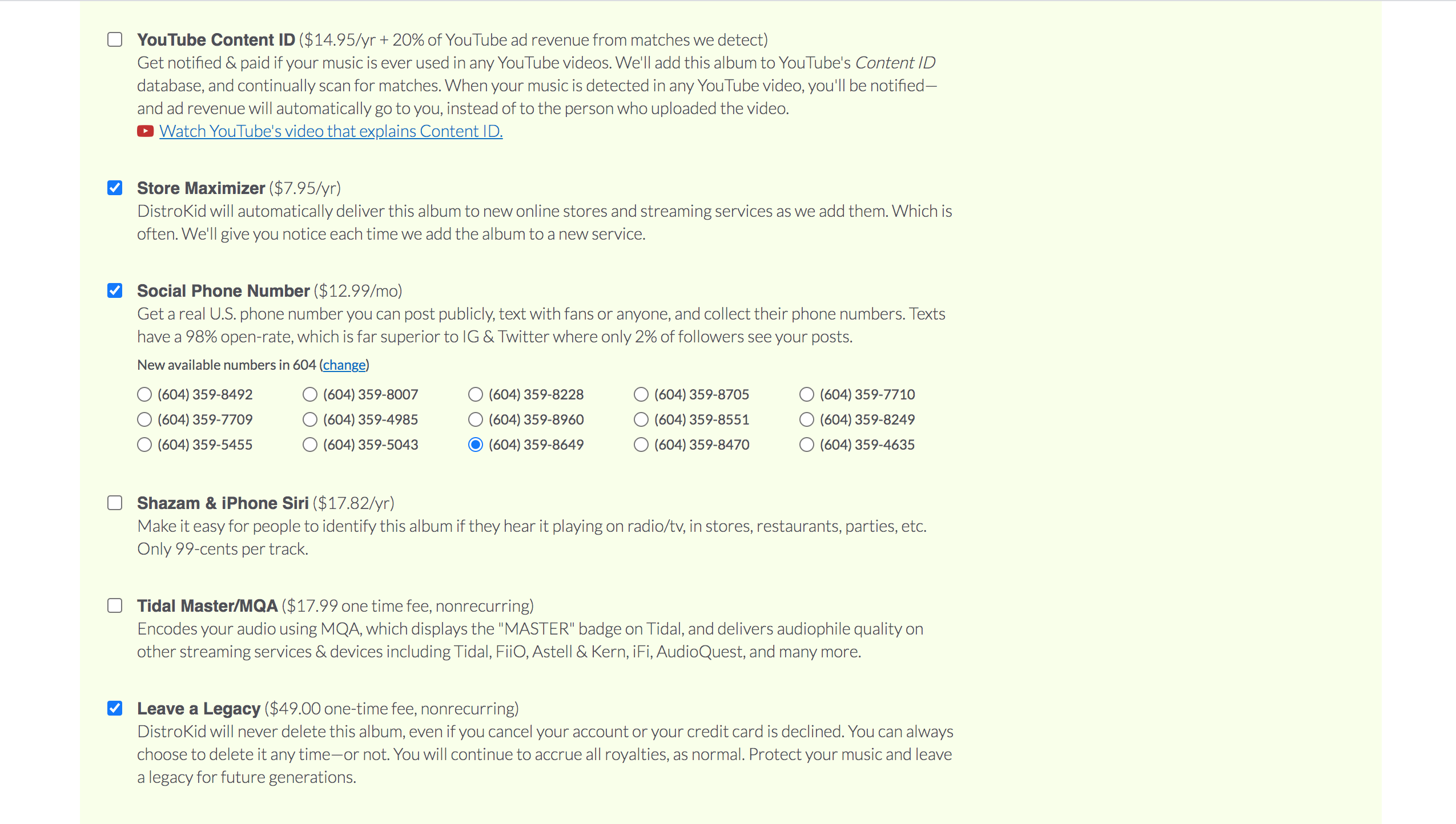
Leave a Legacy costs a one-time fee of $49 USD for albums (or any release composed of two or more songs) and $29 USD for singles. If you’re not sure you want to opt-in at the time of release, you can always go into your releases and add it later in your career.
Different forums have conflicting information about Leave a Legacy with regards to what happens to your music if you cancel your account. As of May 2021, you will be able to select whether or not you want your Leave a Legacy releases to remain online when you cancel your account. There is no guarantee, however, that your Leave a Legacy releases will remain published if DistroKid goes out of business.
Which partners does DistroKid distribute to?
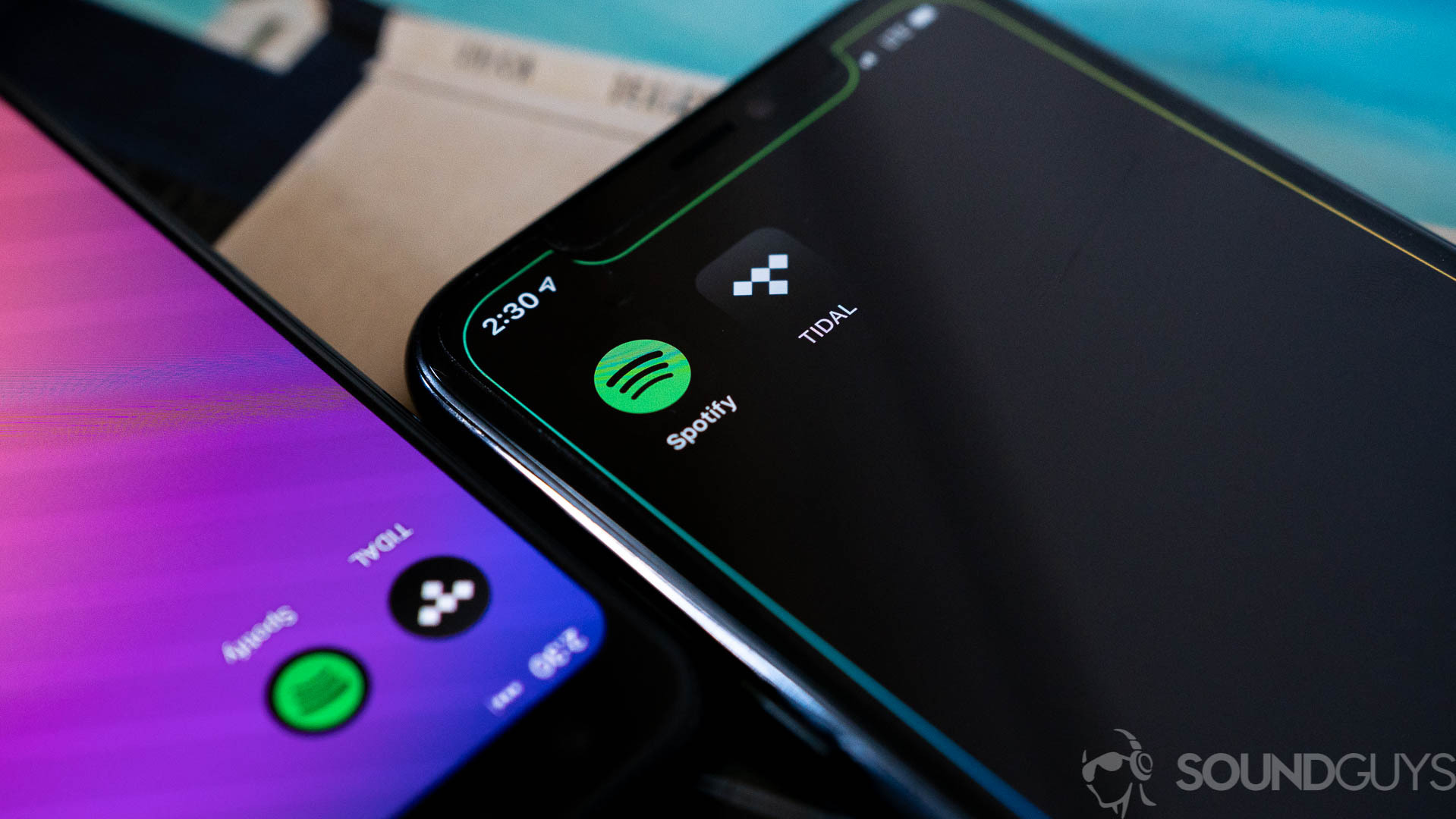
DistroKid distributes your music to all of the major streaming services and digital stores, including Spotify, Apple Music and iTunes, TikTok, Instagram, Facebook, Amazon, and many more.
DistroKid prides itself on how quickly it places music in stores, but to be safe, you should set your release date 3-4 weeks in advance. Unfortunately, if you have the basic Musician subscription of DistroKid, you will not be able to set a release date for the future, and all releases will go live immediately. This can cause big issues in marketing your release because some digital stores and streaming services will not receive and publish the release at the same time as others. For this reason, we recommend the Musician Plus subscription.
What kind of royalties does DistroKid collect?

Not everyone can afford to hire a manager to parse through the legal jargon, and plenty of independent musicians track and manage their own royalty collection. It can be difficult to understand the conditions of royalties, and which types of royalties DistroKid can collect on your behalf.
DistroKid only collects reproduction royalties, which are a type of recording royalty. Recording royalties are the royalties generated by masters. A master refers to an actual audio recording of a song. DistroKid does not collect any publishing royalties, which are generated by compositions. A composition refers to the lyrics and notes of a song.
Recording royalties encompass those generated from reproduction rights, synchronization rights, and performance rights. Reproduction royalties are a type of recording royalty, and generated by each individual use of a master, such as when a song is sold on a digital store like the Qobuz download store, or when someone plays your song on a streaming service like Tidal. Synchronization royalties are generated when a song is used in a TV show or video game, and accrues a one-time royalty. Performance royalties are generated from digital/Internet radio or satellite radio plays. DistroKid collects reproduction royalties only—it’s just like how record labels distribute music and collect recording royalties for their artists, but for independent artists.
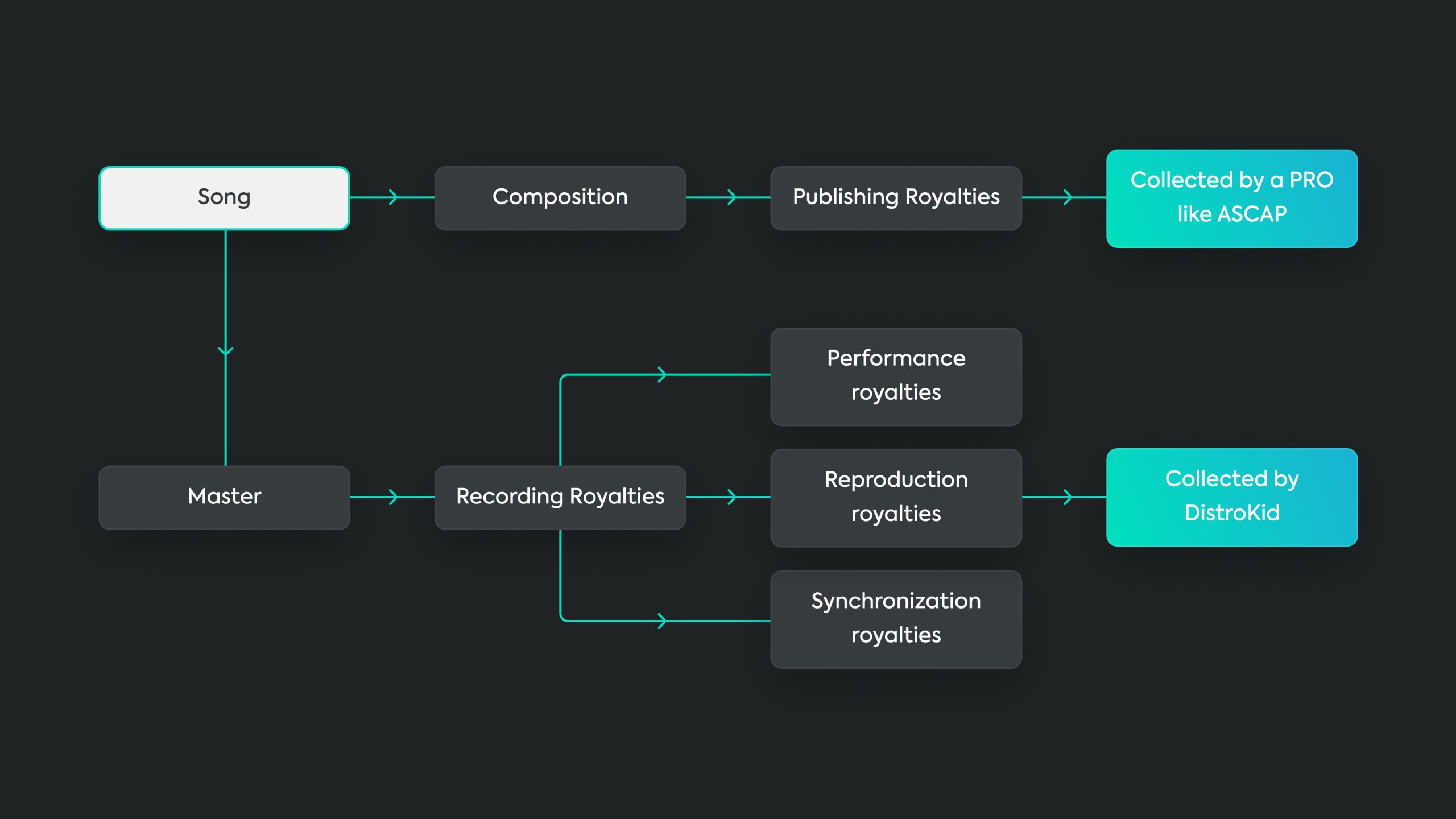
Many independent musicians write and perform their own music on a recording, in which case they will want to collect both recording royalties generated by masters, and publishing royalties generated by compositions. In order to collect these publishing royalties, you must be affiliated with a performance royalty organization (PRO), like ASCAP, and you need to have a publisher or publishing administrator, like Songtrust or CD Baby Pro Publishing.
How do you get your money?

Once your music is out in stores and available on streaming services, you’ll receive reproduction royalties through DistroKid. You can either have DistroKid send these earnings directly to your PayPal account, or you can use DistroKid’s payment processor, Tipalti, which can pay you with eChecks/direct deposit, PayPal, wire transfers, and physical checks.
DistroKid distributes payments every month, and you retain 100% of your earnings. That’s right, DistroKid does not take even a small percentage of your earnings, quite unlike other distribution services like Repost by SoundCloud, which takes 20%. However, maintaining rights through DistroKid comes with additional fees for each of its additional services; the company has to make money somehow.
Can you split the payout with collaborators?
If you want to share your profits with your collaborators, DistroKid offers an easy way to automatically divide your earning by percentages. This is an excellent tool if you work with a music producer and want to share a percentage of the earnings on your collaborations. This tool can only split earnings with collaborators who are DistroKid members, but DistroKid will offer a 50% membership discount to your collaborators if they have not yet signed up. If your collaborator doesn’t renew their membership the following year, their bank will still receive payments from your release as long as it generates royalties, too.
What artist development tools does DistroKid offer?

DistroKid offers a slew of artist development tools. Unfortunately, without paying for a membership, you can’t get a very comprehensive overview of the types of services and tools it offers, which is why we’ve included several screenshots of DistroKid webpages.
With a DistroKid membership, you gain access to a wide selection of customizable video templates that you can insert your songs into for promoting your releases on social media. DistroKid members can link their DistroKid account to an Audiomack account, upload their song’s lyrics into the Instagram story creator, and get a Spotify verified checkmark. Each time you upload a song to DistroKid, it will store a backup file to the cloud. DistroKid also includes a hub for artists where you can edit your bio and profile pictures for streaming services all from one place.
Beyond these basic features, DistroKid has a referral program where you can offer discounts to your friends and receive money when they sign up. There’s also a Twitch affiliate program, and an AI bot that analyzes your song and tells you how danceable it is (in percentages) and its key signature. You can also get a social phone number to directly text your fans (for $12.99/mo), and this can serve as a great marketing tool. DistroLock is another tool that you can use to prevent your music from being stolen and uploaded without your permission.
DistroKid also uses a few programs to help get its members in front of larger audiences, including Hyperfollow, Playlist Spotlight, Wheel of Playlist, Slaps, and Upstream.
Hyperfollow
You can easily create Hyperfollow links and when someone clicks one, they’ll automatically follow you on Spotify and have your music saved to their library. You’ll also receive their email address and other information about them, like what region they’re in and what other artists they listen to on Spotify. If your release hasn’t gone live yet, you can also use your Hyperfollow link as a Spotify pre-save link to build traction around it.
Some may find Hyperfollow invasive, so you can always choose not to share the links that DistroKid creates for your releases.
Playlist Spotlight
My personal favorite DistroKid tool is Playlist Spotlight. If you’ve ever played KittenWar, it works a lot like that. You’re presented with two song previews released to Spotify by DistroKid members, and you can vote on which one you think DistroKid should add to one of its official Spotify playlists—you can even sort songs to vote on by genre.
Playlist Spotlight is a simple and quick way to support other independent artists you think deserve more attention. You can also send a direct message to the artists behind each of the presented songs and let them know you liked their song. You don’t actually need to be a member of DistroKid to vote for songs with Playlist Spotlight, but you do need to be a DistroKid member to submit your own tracks.
To submit your track to Playlist Spotlight, just click +Your Track on the Playlist Spotlight menu bar. You can submit one track per artist at a time, so if you have a Musician Plus subscription and manage two artists, you can submit one track for each. The playlists are updated every week, and when the playlists get updated, all the votes reset to zero.
Wheel of Playlist
Wheel of Playlist is a tool where artists can select which of their songs they want to see featured on DistroKid’s Spotify playlist. You can spin the virtual wheel three times within 24 hours, and each spin will yield a number representing a position within the playlist. There are nearly 2,000 songs on the playlist at any given time, and the songs only stay on it without re-spinning for a few days.
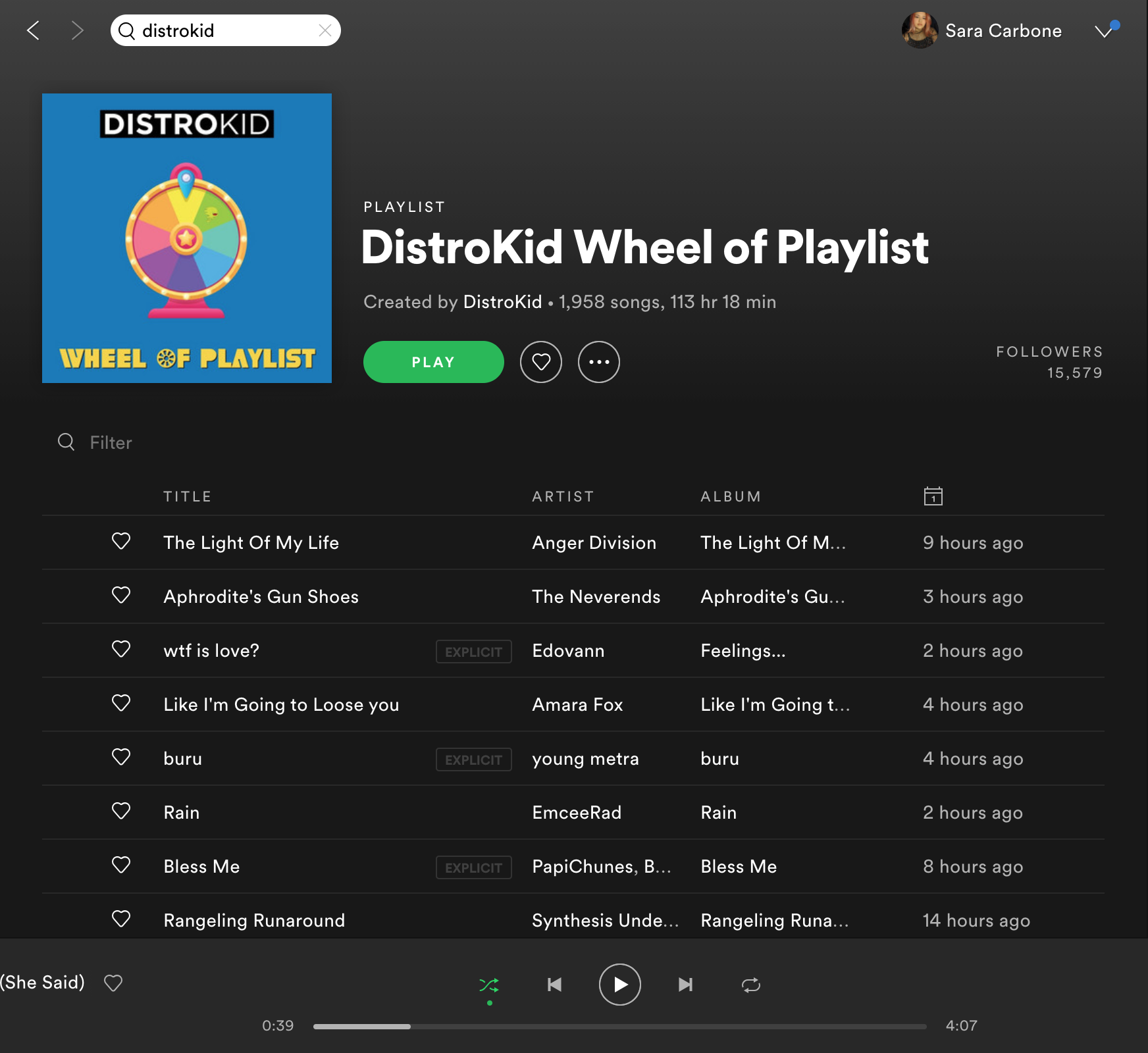
It’s unclear how effective Wheel of Playlist actually is at getting artists’ music heard, but the chances of your song getting heard are at least marginally higher if it’s on the playlist, since the playlist has over 15,000 followers.
Slaps.com
Slaps.com is a daughter website of DistroKid that artists can use to discover music and support each other. The home page promotes artists and there are designated group pages with various artists organized by genre, mood, other musicians that serve as inspiration, and more. You can create a group and give it a name and description, and anyone will be able to join. Music on the home page of Slaps and the home page of each group is organized by what is currently popular on the website, and what is new in that category.
The coolest part of Slaps is the comment/track ratio (CTR). The goal is to increase your CTR by commenting on and engaging with other musicians’ uploads, and your good karma will reward you by featuring you higher up on the CTR page. The CTR page features tracks by artists with very high CTR who have not received a lot of engagement on their uploads. It’s a great system that encourages community.
Slaps is similar to SoundCloud in that you can comment on specific timestamps of a track—if you really liked one line in the second verse of a song, you can let the artist know right then and there. It also lets you send direct messages to other artists, making it easy to collaborate or start a conversation with them.
DistroKid Upstream
If you are using DistroKid to distribute your music but hope to sign a record deal someday, DistroKid Upstream can help you out. This is a lot like a dating app, except it matches artists to record labels. Upstream is completely free for DistroKid artists, and record labels pay a finders fee to DistroKid if they sign an artist from Upstream.
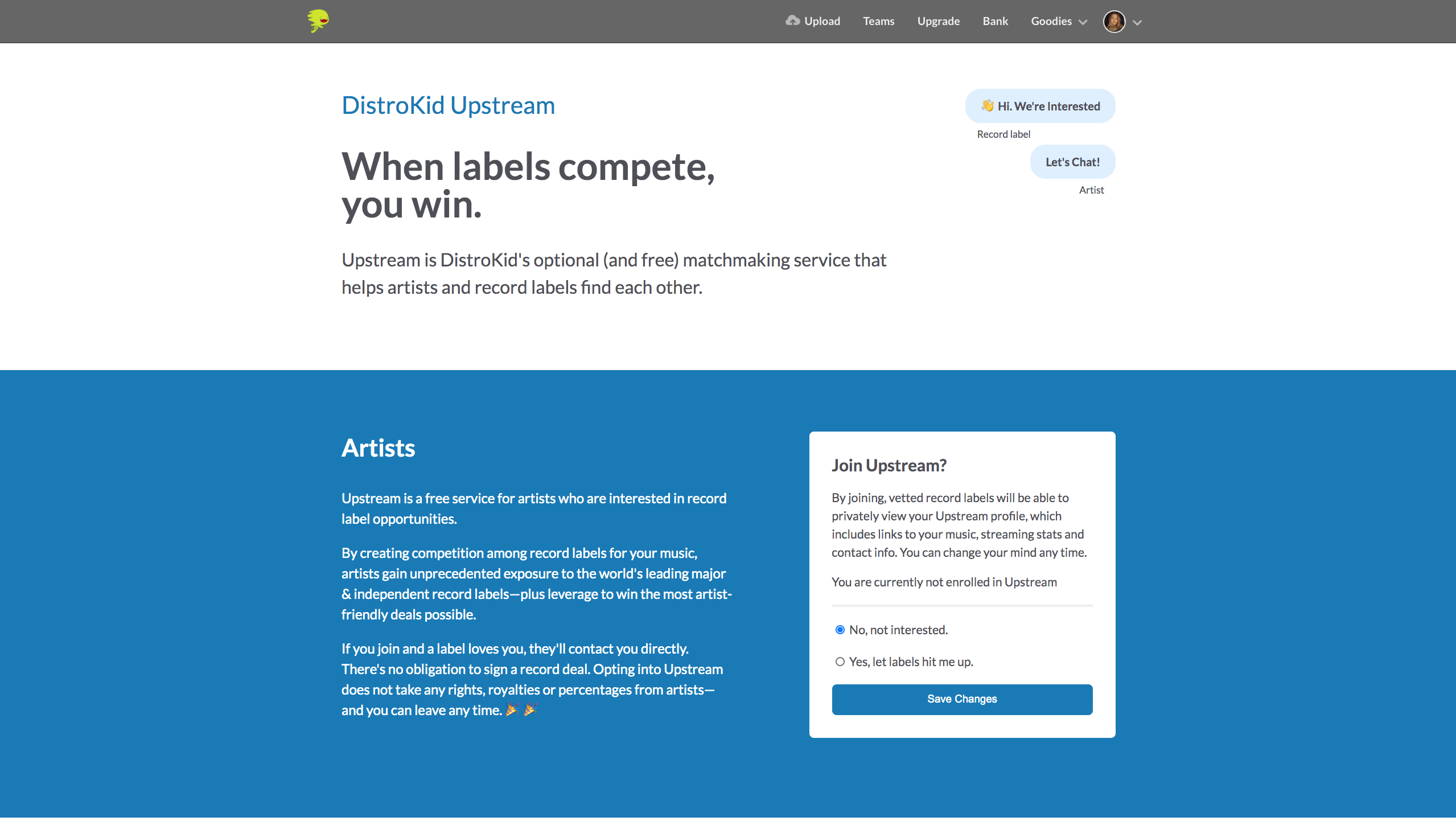
If you opt into Upstream, labels will have access to your Upstream profile, which will include links to your music, your streaming statistics, and your contact information. Opting in to Upstream doesn’t commit you to signing a deal with any record label—rather, it gets you on the market to see what you can catch. If a record label likes what it sees, it will reach out to you directly.
Record labels and music managers can sign up for Upstream once they’ve gone through a vetting process that proves they have a history of being successful and issuing agreements that benefit artists. As of May 2021, the only record label signed up to Upstream is Republic Records, but this is because Upstream is a new service that started this January. More record labels, both major and independent, should join soon.
Should you join DistroKid?
I’m torn: DistroKid offers arguably the best exposure and promotional tools of any distribution service, but the fact that you have to pay for every add-on service is kind of sketchy, especially since DistroKid does not tell you about these charges from the start. Many distribution services offer things like your music’s permanent existence on the internet and YouTube monetization, and they don’t charge an additional fee like DistroKid.
If you don’t care about any of these add-ons and just want to maximize your exposure and frequently release music for a low price, DistroKid will be your best friend. Even if you are someone who wants to use the Leave a Legacy feature, you’ll have to calculate the cost-benefit of the artist development tools and quick distribution times.
Which distribution service is better: DistroKid or CD Baby?
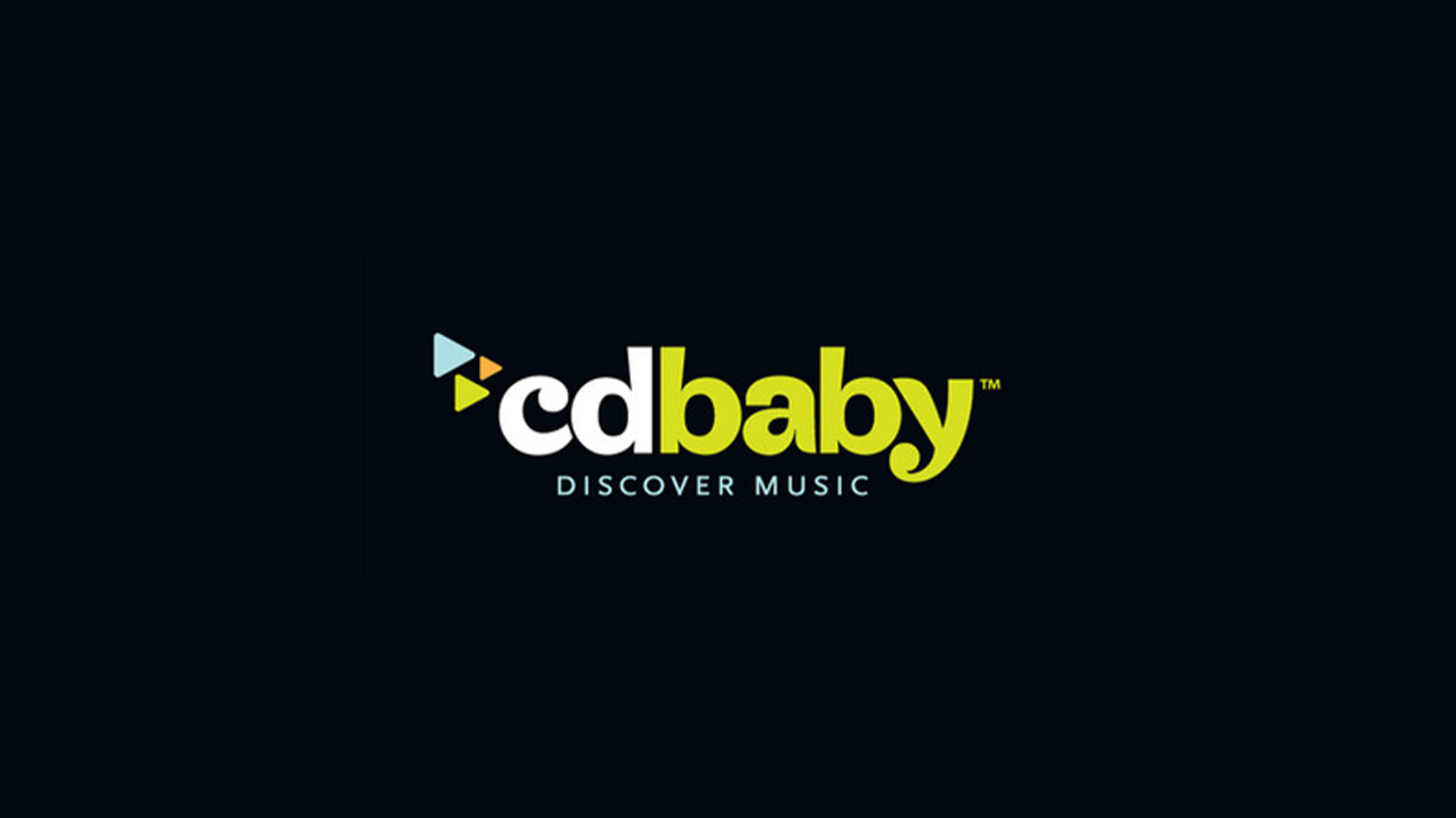
From a pure value perspective, DistroKid is a better choice if you’re releasing music often and don’t care about opting in to the Leave a Legacy program or any additional services. You can read our in-depth comparison of DistroKid and CD Baby, but if you’re in a rush, read below:
CD Baby charges $9.95 per single and $29 per album, and CD Baby Pro Publishing bumps these numbers up to $29.95 per single and $69 per album, which is a lot higher than Distrokid at face value. However, if you use the Leave a Legacy program for all of your releases, opt-in for YouTube monetization, or partake in any of the other paid services DistroKid offers, it will cost you more per release—you’ll pay additional fees on top of your annual subscription. Oh, and don’t forget that when you hire a publisher or publishing administrator, it adds even more bucks to your bill.
As for the offered benefits and usability of each distribution service, they’re similar. Much like DistroKid, CD Baby offers tools like generating Spotify pre-save links, and it also offers unique tools like cheap audio mastering. Releasing cover songs is a little less streamlined with CD Baby, however, and it doesn’t offer any programs like Slaps or DistroKid Upstream.
Read next: Bandcamp review
Frequently asked questions
Yes, the only way to use DistroKid’s services is to pay for a subscription. If you are a solo artist, your subscription will cost $19.99 per year.
